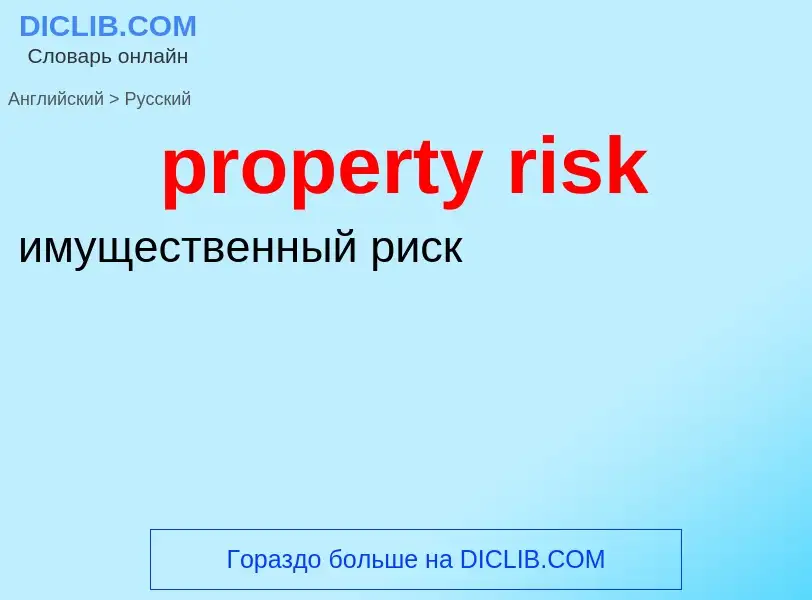Traduzione e analisi delle parole tramite l'intelligenza artificiale ChatGPT
In questa pagina puoi ottenere un'analisi dettagliata di una parola o frase, prodotta utilizzando la migliore tecnologia di intelligenza artificiale fino ad oggi:
- come viene usata la parola
- frequenza di utilizzo
- è usato più spesso nel discorso orale o scritto
- opzioni di traduzione delle parole
- esempi di utilizzo (varie frasi con traduzione)
- etimologia
property risk - traduzione in russo
математика
относительный риск
Definizione
Wikipedia
Risk-based pricing is a methodology adopted by many lenders in the mortgage and financial services industries. It has been in use for many years as lenders try to measure loan risk in terms of interest rates and other fees. The interest rate on a loan is determined not only by the time value of money, but also by the lender's estimate of the probability that the borrower will default on the loan. A borrower who the lender thinks is less likely to default will be offered a better (lower) interest rate. This means that different borrowers will pay different rates.
The lender may consider a variety of factors in assessing the probability of default. These factors might be characteristics of the individual borrower, like the borrower's credit score or employment status. These factors might also be characteristics of the loan; for example, a mortgage lender might offer different rates to the same borrower, depending on whether that borrower wished to buy a single-family house or a condominium.
Concerns have been raised about the extent to which risk-based pricing increases borrowing costs for the poor, who are generally more likely to default, and thereby further increases their likelihood of default. Supporters also argue that risk-based pricing expands access to credit for high-risk borrowers (who are often lower-income), by allowing lenders to price this increased risk into the loan.

